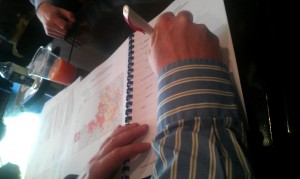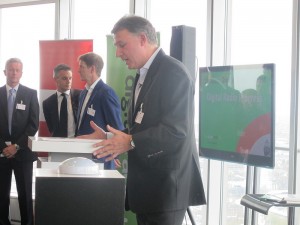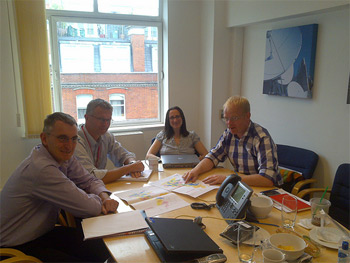I’m pleased to be able to announce the launch of our first multiplex – for Wrexham, Chester and Liverpool in November 2012. Clearly, this has taken a little longer than we hoped. At the point we applied for the licence we didn’t necessarily expect a global financial crisis, ownership changes for the vast majority of UK radio stations and the long-running industry discussions between Ofcom, Government, the BBC and the radio groups.
I would hope that you would believe me when I say that the frustration has been felt most keenly in this office, as launching multiplexes is what we want to do!
We’ve announced an initial list of services for this mutliplex, we hope that we’ll be able to add to it over the coming months. We’re talking with many potential operators, but are always keen to hear from more. You can email me, [email protected], if you would like more information.
You’ll be able to follow more of the multiplex’s progress here and we’ve also created a twitter account for it as well – @MuxCoWCL.
We don’t have any news to announce about the other multiplexes at the moment, but we’ll update the blog as soon as we do.
The picture here is Gregory signing the 12 year transmission contract for Wrexham, Chester and Liverpool:

We issued this press release this morning:
MuxCo announces launch plans for a New DAB Digital Radio Multiplex serving Liverpool, Cheshire and North Wales
MuxCo today (23 April) announces its launch plans for the new DAB Digital Radio multiplex that will serve Liverpool, Cheshire and North Wales from November 2012.
Using transmitters at Moel-y-Parc, Wrexham Rhos and St.John’s Beacon, the multiplex will serve around 1.8m adults (15+) enabling a range of existing and new services to broadcast on DAB Digital Radio.
The multiplex will broadcast BBC Radio Wales, BBC Radio Cymru, 107.6 Juice FM, Real Radio and Dee 106.3, allowing these existing services to both broadcast in digital quality and be heard by a wider audience than can currently hear them on FM Radio. The multiplex launch will also see Nation Radio become Wales’ second national commercial station as it moves into the north of the country for the first time.
The launch of the multiplex means there’s also space for new radio stations to broadcast across the area. All that prospective operators need to do is visit www.muxco.com for more information.
Gregory Watson, Managing Director at MuxCo, said “We’re excited that some of the area’s favourite stations and some new radio choices are going to be available for listeners across Liverpool, Cheshire and North Wales. Half the country listens to stations on digital radio each week, we’re pleased that listeners can now tune in to stations on digital radio locally from November.”
ENDS




